|
Scripture Readings: Genesis 17:1–7, 15–16 | Psalm 22:23–31 | Romans 4:13–25 | Mark 8:31–38
He called the crowd with his disciples, and said to them, “If any want to become my followers, let them deny themselves and take up their cross and follow me. 35 For those who want to save their life will lose it, and those who lose their life for my sake, and for the sake of the gospel, will save it. Mark 8:34-35 For many today, self-denial presents a serious struggle. Our current culture is one in which we’re urged to give in to our urges… to pursue what makes us ‘happy’ as one of the highest goals in life. We can see this at work in the blatant consumerism all around us… promising us fulfillment if we’ll buy into what they’re selling. We can also see this at work in the more belligerent resistance to making simple concessions for the sake of the safety of others… like wearing masks in public during a global pandemic. But before we get to comfortable pointing our fingers at those ‘other’ people, it’s good to remember that this same struggle is at work in us as well. No one loves to be told to do what we don’t really want to do. To go against our own instincts, or set aside our plans. To do something like that requires a whole lot of trust… trust in the one who is asking us to follow their lead instead. In our Scripture readings today from the book of Genesis and the Gospel of Mark, we find the Living God at work inviting His people to trust Him: to set aside our own agendas, and hand our lives over to Him. In our reading from Genesis 17, we heard the Living God reaffirm His relationship with Abram and Sarai, who He renames Abraham and Sarah. We heard God call them into a deeper, life-shaping commitment, promising that through them both would come many nations and kings. This all sounds wonderful, especially for Abraham and Sarah, who were both well beyond the age when having children was even possible. God’s promising them more then they could ever achieve on their own. But wrapped up in this wonderful promise is also an invitation to faith, by saying no to their own ideas about the way forward. This is a call to take God at His word, even if it seems impossible. Backing up a bit in Abraham’s story, this all becomes a bit clearer. In Chapter 15, God promises that Abram will have children of his own… offspring who will carry on his line, despite his advanced age. In Chapter 15:5-6, God tells him: “Look toward heaven and count the stars, if you are able to count them.” Then he said to him, “So shall your descendants be.” 6 And [Abram] believed the Lord; and the Lord reckoned it to him as righteousness.” So far so good. He trusted God, and took Him at His word, but as their story unfolds, we can see that Abram and Sarai will continue to struggle to let go of control… causing deep pain and wickedness as a result. Right after God makes this promise, in Genesis Chapter 16, Sarai decides the only way forward is to take matters into her own hands, by making her Egyptian slave sleep with Abram, to bear him a son. Calling to mind how Eve took the fruit of the tree of the knowledge of good and evil, and gave it to Adam, choosing to go their own way, instead of staying true to the LORD, Genesis 16:3 says “Sarai, Abram’s wife, took Hagar the Egyptian, her slave-girl, and gave her to her husband Abram as a wife.” Together they use this vulnerable person as a tool to achieve their own ends… and from this act, all sorts of cruelty and division unfold in their family. And yet, God steps in to bring life and hope to Hagar and Ishmael her son… leading us to Chapter 17 where the LORD has words with Abram and Sarai. “I am God Almighty”, He reminds them, able to be faithful, despite all their doubts, and for their part they’re to walk before Him “and be blameless.” How they live in the world as His people matters: their faith needs to take shape in all they do. Letting go of their own agendas, and letting God lead them onward. In short, God calls Abraham and Sarah to a renewed relationship of faithfulness; trusting that the LORD would be true to His word, as impossible as it may seem, and that they were to let go of their need for control, and follow His holy ways. In our Gospel reading today, we find another call to faithfulness, another wonderful promise, and another struggle at work. We heard Jesus our Lord making clear what it means to be His disciple: it means denying ourselves, taking up our crosses, and following Him. The scholar R.T. France makes an important point about what this really entails: “The metaphor of taking up one’s own cross is not to be domesticated into an exhortation merely to endure hardship patiently. In this context… it is an extension of Jesus’ readiness for death to those who follow him, and the following verses will fill it out still in terms of the loss of life, not merely the acceptance of discomfort. While it may no doubt be legitimately applied to other and lesser aspects of the suffering involved in following Jesus, the primary reference in context must be to the possibility of literal death.”[1] As was the case for Christians throughout the ages, and even to this day, following Jesus means putting it all on the line: it may lead us to our death. This is a clear call for serious commitment. For entrusting our entire lives to the LORD. But with this call to deny ourselves, comes the promise of New Life. Unlike the fleeting security and false fulfillment our world has to offer, Jesus is leading us into the eternal life of God. “For those who want to save their life will lose it,” Jesus says, “and those who lose their life for my sake, and for the sake of the gospel, will save it.” (Mark 8:35). Just as the LORD promised that Abraham & Sarah would have offspring of their own, as impossible as it seemed, Christ promises that as hard as discipleship may be, it will all be worth it! That following Him to the cross is truly the path to life. The question again becomes: will we take Christ at His word? Backing up again… before Christ says these challenging yet promising words, we heard what led Him to utter them: the challenge from Peter. Moments before, Peter had been the first to confess that Jesus was more than simply a teacher, a miracle worker, or prophet, but was in fact the Christ, the Chosen Messiah of God, sent to rescue His people, and bring God’s good kingdom at last. It’s clear Peter believed in Jesus… but just like Abram and Sarai before him, he struggled to let go of his own ideas of how God’s plan would unfold. Unable to reconcile his own vision of what it meant to be the Messiah, with Jesus’ words about rejection, suffering, and death, Peter tried to turn his Master away from His dangerous mission… but ended up getting in the way of God’s kingdom. So Christ has words with Peter, calling him to remember that our human ways are not the same as the ways of God. That despite how frightening the path before them might be, enduring the cross was the only way God’s good kingdom would be able to come. To trust that Jesus is the Christ means letting Him lead us onward… sharing in His sufferings, to also share in His New Life. As Christians today, faced with our own struggles, temptations, and doubts, we too are invited to trust in Christ, and follow Him in faith. To let our plans and actions be shaped and guided by His holy love; to bring to Him our fears of losing control, and suffering; to remember that God Almighty can truly handle what lies before us; and to believe that our Saviour will see us safely home. Christ’s call for us to deny ourselves is above all else an invitation to trust Him. Not only once and a while, but all throughout our days. So may the Holy Spirit give us the faith to pick up our crosses and follow Jesus. Living God’s way in the world, as He leads us into Life. Amen. [1] R. T. France, The Gospel of Mark: A Commentary on the Greek Text, New International Greek Testament Commentary (Grand Rapids, MI; Carlisle: W.B. Eerdmans; Paternoster Press, 2002), 340.
0 Comments
Today is the second Sunday of the holy season of Lent. It is a time of repentance, renewed obedience, and preparation for the celebration of Holy Week: the crucifixion and saving death of Jesus Christ on Good Friday, and the joyous resurrection of our Lord on Easter. The season of Lent draws together a host of important biblical themes. Here is a short video from the Bible Project that can help us explore the theme of The Test in the Bible. Our service of Morning Prayer, Bulletin, and Sermon this week can be found here: Our All-Ages Song for Lent can be found here: And our other Songs can be found here:
Scripture Readings: Genesis 9:8–17 | Psalm 25:1–10 | 1 Peter 3:18–22 | Mark 1:9–15
For Christ also suffered for sins once for all, the righteous for the unrighteous, in order to bring you to God. (1 Peter 3:18) Are we feeling overwhelmed? By our own inner struggles? By outside circumstances? By a lack of hope? Long before any of us had heard about COVID-19, most people were already under a whole lot of pressure. Pressure to ‘be our best selves’, or at least keep our ‘worst selves’ well hidden. Pressure to keep in control of our increasingly complex surroundings… in our personal, professional, and our public lives. Pressure to keep our spirits up, in the face of great uncertainty, unsure of where our efforts will end up leading us in the end. Add on top of this, the pressures of an enduring pandemic, and it’s easy to see why so many today are feeling overwhelmed. And here we are today, while many are longing for relief, marking the first Sunday of Lent, a solemn season of forty days of fasting, service, and prayer, drawing us into the story of Christ, on His way to the cross. It’s not exactly the most upbeat or relaxed season of the Christian Year, but instead of being another burden, Lent is meant to bring us life… to bring us closer to the source of abundant life. The scholar, William Abraham reminds us of it’s history: “Lent” he writes, “was originally a period of intense scrutiny, self-examination, and spiritual stocktaking for new believers. It was the last step before baptism when believers faced up to the full demands of following Christ… in Lent we are driven back to the elemental issues of the faith. We are confronted again with baptism, with our primary identity as children of God, with the coming of the Holy Spirit into our lives, with the ever enduring battle with the demonic, and with the ever available resources of God.”[1] Lent is a time for us to remember and reconnect with the hope of the Gospel, not as something removed from our day to day lives, but as essential to it… grounding us in the story of God, and in His lovingkindness. Lent is not meant to overwhelm us with burdens, but to draw us closer to Christ, our Saviour. In today’s reading from the Gospel of Mark, we hear of the beginning of Jesus’ own ministry, His great mission of mercy: we hear of Christ’s baptism, His temptation, and His proclamation… all of which offer to us a window into His new life. In Christ’s baptism we find not only the medicine for our inner strife, but we also find God’s remedy for our broken, fractured world: Jesus, the sinless Son of God stepping into our shoes… leading Him to lay down His own life to bring us forgiveness. The emphasis we find in Lent on confession and repentance aren’t about making us feel bad, but about opening us up to receive anew this precious gift of forgiveness. Being washed, in the words of the poet John Donne, “in Christs blood, which hath this might / That being red, it dyes red soules to white.”[2] Faced only with our failures, we can easily despair. But Christ has purchased our forgiveness, freeing us from fear and shame. The theologian, Ben Myers, in his book on the Apostle’s Creed, summarizes the implications of the forgiveness we have in Christ like this: “We believe that we stand not by our own achievements but by the achievement of Jesus’ death and resurrection. We believe that the spiritually strong and the spiritually weak are both sustained by the same forgiving grace. We believe that we rely solely on grace, not only in our worst failures but also in our best successes. We believe that if ever we should turn away from grace, if ever our hearts grow cold and we forget our Lord and become unfaithful to his way, he will not forget us. His faithfulness is deeper than our faithlessness.”[3] United to Christ in His baptism, we have the promise of forgiveness, and are drawn into the gracious life of the Living God. Turning briefly now to the temptation of Jesus: forty days in the wilderness, tempted by Satan, where we find Him to be faithful in the face of suffering. The path He walked to rescue us was full of complications… obstacles and trials, trying always to pull Him off course. And yet, here and all through His life our Lord always stayed true. Faced with outside enticements, oppression, and distractions, Jesus never lost sight of His mission of mercy. His complete faithfulness offers us complete assurance that we can rely on Him in our own hours of need. That following His example, and calling on His name, we too can overcome the temptations all around us. In Jesus, we too can place our trust in our Heavenly Father, seeking to do His will, instead of seeking our own way. With Him, we can endure our times of pain and loneliness, trusting in our Saviour to be with us all the way. And finally, we’re reminded of the proclamation of Jesus: the call to repent, and believe the Good News… God’s Kingdom has come near. To turn our entire lives around to be in line with Jesus: and taking part in His blessed kingdom even now. When it’s hard for us to imagine what the best way forward looks like, this message of the Kingdom gives us hope to carry on. It reminds us that, as we follow Christ, our efforts aren’t in vain. That even if we cannot always see what lies ahead, the future of our world is Christ’s Kingdom without end. So when we are feeling overwhelmed, Lent calls us to remember and trust in these three gifts: the forgiveness of sins, the faithfulness of our Saviour, and the future of God’s Kingdom. These gifts are meant to draw us closer to Jesus, the source of abundant life, comfort, hope, and strength, who suffered for us all in order to bring us to God. Amen. [1] William J. Abraham, “First Sunday in Lent, Year B,” in The Lectionary Commentary: Theological Exegesis for Sunday’s Texts, Volume Three, ed. Roger E. Van Harn (Grand Rapids, MI: Eerdmans, 2001), 170–171. [2] John Donne, John Donne: Selections from Divine Poems, Sermons, Devotions, and Prayers, ed. John Booty and Bernard McGinn, The Classics of Western Spirituality (New York; Mahwah, NJ: Paulist Press, 1990), 78. [3] Ben Myers, The Apostles’ Creed: A Guide to the Ancient Catechism, ed. Todd Hains, Jeff Reimer, and Sarah Awa, Christian Essentials (Bellingham, WA: Lexham Press, 2018), 116. Today is the first Sunday of the holy season of Lent. It is a time of repentance, renewed obedience, and preparation for the celebration of Holy Week: the crucifixion and saving death of Jesus Christ on Good Friday, and the joyous resurrection of our Lord on Easter. Ultimately, this is where Lent is leading us: not to unending self-reflection, or to desperate attempts to better ourselves, but through the cross and empty tomb to the arms of our loving Saviour. As we begin this journey, here is a sonnet by the poet John Donne which points us beyond our sins to the salvation of God in Jesus Christ. Oh my blacke Soule! now thou art summoned By sicknesse, deaths herald, and champion; Thou art like a pilgrim, which abroad hath done Treason, and durst not turne to whence hee is fled, Or like a thiefe, which till deaths doome be read, Wisheth himselfe delivered from prison; But damn’d and hal’d to execution, Wisheth that still he might be imprisoned. Yet grace, if thou repent, thou canst not lacke; But who shall give thee that grace to beginne? Oh make thy selfe with holy mourning blacke, And red with blushing, as thou art with sinne; Or wash thee in Christs blood, which hath this might That being red, it dyes red soules to white. (By John Donne, John Donne: Selections from Divine Poems, Sermons, Devotions, and Prayers, ed. John Booty and Bernard McGinn, The Classics of Western Spirituality (New York; Mahwah, NJ: Paulist Press, 1990), 78.) The season of Lent draws together a host of important biblical themes. Here is a short video from the Bible Project that can help us explore the meaning of Sacrifice and Atonement in the Bible. Our service of Morning Prayer, Bulletin, and Sermon this week can be found here: Our All-Ages Song for Lent can be found here: And our other Songs can be found here: This has been a year in which our world has been confronted with our human mortality, our fragility, and need for mercy in a profound and extended way. As followers of Christ, today we commemorate Ash Wednesday and the beginning of Lent, in which we put this reality of our pain and brokenness into the context of the saving story of God, in which Jesus Christ has embraced us in His own death for us "while we were still sinners" (Romans 5:8), in order that we might share in His own resurrection life.
Here you will find our At-Home Ash Wednesday service, so that each household can mark this sacred day together, even though we are not gathering all together at St. Luke's Church at this time. I will be at St. Luke's this evening to offer the Imposition of Ashes portion of the service individually (and in a safe manner) from 7-8PM for any who desire this particular ministry. You will also find a link to a reflection on Lent by Rev. James W. Farwell (Professor of Theology and Liturgy, and Director of Anglican Studies at Virginia Theological Seminary), entitled "Must We Do Lent This Year?", which I hope will be edifying. Many blessings as we begin this sacred season of Lent, aware of our many needs, yet confident in the faithfulness of our Saviour. Rob+ Scripture Readings: 2 Kings 2:1–12 | Psalm 50:1–6 | 2 Corinthians 4:3–6 | Mark 9:2–9
“This is my Son, the Beloved; listen to him!” This morning the Church celebrates Transfiguration Sunday: the part of our story when our Lord Jesus Christ was dramatically revealed as the beloved Son of God to Peter, James, and John, on top of a mountain. It is a strange part of our story, with puzzling, otherworldly elements, and yet it also offers us a clear, life-giving message; in many ways, summing up God’s word to us today. But this part of our story does not simply stand all on its own. Its message flows throughout the entire story of the Bible, drawing together its distinct notes into a surprising melody. And so, while this passage from Mark’s Gospel wants to focus our eyes on Jesus, it does so by bringing to mind two renowned servants of God: Moses and Elijah two of Israel’s greatest heroes, appear with Jesus as He is transfigured in glory on top of the mountain. Each of these ancient prophets, who spoke for and served the Living God, had their own dramatic parts to play in the story so far. Moses, of course, was chosen to lead God’s people out of slavery in Egypt, to become a people set apart for the LORD. It was through Moses that God had given the Law, the commands of the covenant to transform Israel’s communal life by God’s own holy love. And centuries later, Elijah was known for powerfully challenging the unfaithful leaders of Israel, calling the people back to serve the LORD with all their hearts, and to turn away from the false gods they had been chasing after. Yet besides having two very different roles to play in God’s story, there are also some striking similarities between them that we should note: Both Moses and Elijah had encounters with God on a mountain. The same mountain, actually: Mount Sinai, or Horeb. Moses had met with God alone amid the lightning and the cloud to receive the Law from the LORD, in order to share it with Israel. Elijah, fleeing the wrath of King Ahab and Queen Jezebel, encountered the LORD at his lowest moment, who offered some surprising hope that God had not given up on His people. Both Moses and Elijah were also connected to the promise of the Messiah, seen as foreshadowing the coming of God’s ultimate Saviour. The last biblical prophet of the Old Testament, Malachi, concludes his book with these words from the LORD: 4 Remember the teaching of my servant Moses, the statutes and ordinances that I commanded him at Horeb for all Israel. 5 Lo, I will send you the prophet Elijah before the great and terrible day of the Lord comes. 6 He will turn the hearts of parents to their children and the hearts of children to their parents, so that I will not come and strike the land with a curse. (Malachi 4:4-5). As God’s people longed for His Chosen One to bring God’s kingdom at last, the stories of Moses and Elijah were deeply tied to this hope: That the One who had promised to be their God, and to make them His own people would not abandon them, and would be their faithful redeemer. Which leads us to one more way that both Moses and Elijah were connected: they had both stood before God’s people and called them to make a clear choice. To choose to be faithful to the Living God, or go their own way. To choose the path of life, or the path that leads to death. At the end of his life, after leading the people of Israel through the wilderness for years, Moses challenged his people to stay true to the LORD. Deuteronomy 30:15-20 15 See, I have set before you today life and prosperity, death and adversity. 16 If you obey the commandments of the Lord your God that I am commanding you today, by loving the Lord your God, walking in his ways, and observing his commandments, decrees, and ordinances, then you shall live and become numerous, and the Lord your God will bless you in the land that you are entering to possess. 17 But if your heart turns away and you do not hear, but are led astray to bow down to other gods and serve them, 18 I declare to you today that you shall perish; you shall not live long in the land that you are crossing the Jordan to enter and possess. 19 I call heaven and earth to witness against you today that I have set before you life and death, blessings and curses. Choose life so that you and your descendants may live, 20 loving the Lord your God, obeying him, and holding fast to him; for that means life to you and length of days, so that you may live in the land that the Lord swore to give to your ancestors, to Abraham, to Isaac, and to Jacob. The way of the LORD leads to life, all others lead to death. Moses confronted the people with this call to faithfulness. Centuries later, after years of Israel’s blatant unfaithfulness, worshipping the Canaanite gods, like Baal, Elijah confronts God’s people with the same kind of decision: Serve the LORD, the Living God alone, or serve somebody else. Take the path of life, or the path that leads to death. As we can read in 1 Kings 18, Elijah challenged the prophets of Baal to a dramatic, mountain-top showdown in front of the assembled crowds of Israelites. Verse 21: 21 Elijah then came near to all the people, and said, “How long will you go limping with two different opinions? If the Lord is God, follow him; but if Baal, then follow him.” The people did not answer him a word. But in a dramatic display of power, the LORD answered Elijah’s prayers, turning the hearts of the people back to the Living God, for a time. These three similarities between Moses and Elijah… their special encounters with God on top of a mountain, their connection to Israel’s future hope of God’s coming kingdom, and their roles in calling God’s people to renewed faithfulness, all come together in our Gospel passage for this morning, and shed light on its significance. Helping us to understand it’s message for us today. Mark tells us that Jesus brought three disciples, Peter, James, and John, up to a mountain with Him, where He was changed before their eyes. Transfigured, with clothes suddenly shining with an unearthly light, Christ gives these three a glimpse of God’s coming Kingdom through Him. This alone would have been an amazing experience for the disciples, but then suddenly Moses and Elijah are there alongside their master. Having grown up hearing all about these two heroes of Israel, no doubt their heads were spinning as they tried to grasp what this all meant. The scholar R.T. France points out that, “the reappearance of two such great men of God from the past, and their conversation with Jesus, would evoke a sense of Jesus’ climactic place in the ongoing purpose of God, and of the coming of the long-awaited age of fulfilment in his person.”[1] Here they all were: on a mountain top, Moses and Elijah talking with their Master, who was just transformed in glory before their very eyes. All this would surely confirm that He is indeed the Messiah, the Chosen One who would finally bring God’s good Kingdom at last. Then suddenly, a cloud overshadows them, like it did on Mt. Sinai when the LORD appeared long ago, and a voice calls out: “This is my Son, the Beloved; listen to him!” More than a prophet, more than even a human Messiah, Jesus is being revealed as the very Son of God… and also revealing what their (and our) response to Him must be. The scholar Stanley Saunders maintains that “Everything in this episode —Jesus’ transformation, the appearance of Elijah and Moses, Peter’s babbling attempt to be useful —leads up to the moment when God speaks from the cloud that suddenly overshadows them, naming Jesus and commanding the disciples to “Listen to him!”[2] This is the message of the Transfiguration: God’s word that “This is my Son, the Beloved; listen to him!” If this is truly who Christ is than what else could we do? Again, in facing Jesus we’re confronted with the choice between the way of life or the way of death: to listen to and follow God’s own beloved Son, or to listen to other voices, and follow our own way. So, what is Jesus saying to us? What are we being asked to do if we too are to follow God’s beloved Son? Many things, we can be sure. Some which will seem wonderful, filling us with hope and joy. Some which will be much harder, calling us to be transformed. Immediately before he led Peter, James, and John up the mountain, Mark tells us that Jesus had some hard words for His disciples to hear. Though Peter tries to push forward his own vision for God’s kingdom, Jesus reveals to them His mission is to suffer, die, and rise again, and that those who follow Him on this way of life will suffer too. He says to them in Mark 8:34-35: If any want to become my followers, let them deny themselves and take up their cross and follow me. 35 For those who want to save their life will lose it, and those who lose their life for my sake, and for the sake of the gospel, will save it. Confronted with this choice, will we listen to Him? Will we find true life by taking up our crosses, and following Him? This coming Wednesday, we will begin our journey through the season of Lent; choosing the way of life by following Jesus as He bears our sins up mount Calvary, overcoming the power of death, by dying on the cross. We follow Him there knowing that the grave could not hold Him, and that New Life awaits all those who place their hope in Him. The Season of Lent invites us to listen closely to our Lord: to draw near to Him, and be transformed by God’s mercy and grace. So may the Holy Spirit of God open our eyes and hearts to God’s vision for our lives: for ourselves, for our families, our Parish, and our world. And may we draw near to Jesus, God’s own beloved Son, and truly listen to Him… committed to being faithful to Him, and in Him find New Life. Amen. [1] R. T. France, The Gospel of Mark: A Commentary on the Greek Text, New International Greek Testament Commentary (Grand Rapids, MI; Carlisle: W.B. Eerdmans; Paternoster Press, 2002), 352. [2] Stanley P. Saunders, “Exegetical Perspective on Mark 9:2–9,” in Feasting on the Word: Preaching the Revised Common Lectionary: Year B, ed. David L. Bartlett and Barbara Brown Taylor, vol. 1 (Louisville, KY: Westminster John Knox Press, 2008), 453. Today we celebrate the Transfiguration of our Lord; a feast day revealing Jesus' identity as God's beloved Son, and calling us to respond to Him with faithfulness. Our service of Morning Prayer, Bulletin, and Sermon this week can be found here: Our All-Ages Song for Epiphany can be found here: And our other Songs can be found here: Scripture Readings: Isaiah 40:21–31 | Psalm 147:1–11, 20c | 1 Corinthians 9:16–23 | Mark 1:29–39
“I have become all things to all people, that I might by all means save some.” What does it mean to become all things to all people? And in what ways are these words being directed to us today? We are living in a society which cares a lot about identity. For many, it seems, the highest purpose in life is all about figuring out, or perhaps even crafting, ‘who it is we really are’… the journey of self-discovery, summed up well in these famous words from the play Hamlet: “This above all: to thine own self be true.”[1] For many, being authentic, ‘being yourself’, has become the greatest goal. And yet… at the very same time there’s the crushing pressure to find acceptance… to receive approval and welcome from the people we value in life. No one wants to be shunned, to be rejected or excluded, and one of the easiest ways to avoid that seems to be to try and fit in… to adjust aspects about ourselves to blend in with the group… or as the marketing slogan goes: “Give the people what they want.” Even if this means we have to put on a bit of an act. “Be yourself”, and “be like us”. “Be unique” and “be sure to fit in.” These two conflicting messages are pulling on us all. And into this mix, we hear the words from St. Paul’s letter this morning, speaking about how he became “all things to all people.” Though it may at first seem like St. Paul has simply chosen his side… that is, ‘fitting in’, even at the cost of authenticity… there’s actually something in his words and life which moves us far beyond our culture’s quests for self-discovery, or finding community. But to better understand what St. Paul is calling for, I think we would do well to turn again to today’s Gospel text: to the first Chapter of Mark, and his story of Christ’s first healing. Our Gospel reading today takes place right after last week’s encounter in Capernaum, between the man with the unclean spirit and Jesus of Nazareth. We heard last week how with a word, Christ cast the unclean spirit out, powerfully revealing His clear spiritual authority. And so today, we heard that right after this amazing event in the synagogue, Jesus and His first disciples went to the house of Simon Peter and Andrew (probably to enjoy their own version of Hymn Tortons[2]), and there they find Peter’s mother-in-law in bed with a fever. Even today, with modern medicine, this could have been quite dangerous. Back then, this could have easily been a matter of life and death. But easily, and astonishingly, Jesus takes her hand and raises her up from her sick bed, and she’s completely healed. Word spreads, and once the Sabbath was over at sunset, the whole town had gathered at the door, bringing to Jesus everyone who was sick, or was suffering at the hands of an unclean spirit. And Jesus brought to them God’s healing and rescuing power; restoring their bodies, minds, and spirits, working well into the night in order to bring them rest at last. So far, so good. Everything seems to be going smoothly. Jesus has a chance to do some real good in this community, building up his base of support, at the same time. But in the morning, we heard Jesus was nowhere to be found. And when the disciples tracked Him down and tried to explain that “everyone is searching for you”, Jesus replies: “Let us go on to the neighboring towns, so that I may proclaim the message there also” (Mark 1:38). Why go so soon? Why would He leave, when there’s still so much to do? The people of Capernaum, not to mention His own disciples, wanted Him to stick around. The crowds saw His power to bring them spiritual and physical freedom beyond their deepest hopes. The disciples saw how the people were all being powerfully drawn to Him. They saw the beginnings of a movement with real momentum. Their new Rabbi had the potential of becoming an influential leader, and no doubt, as His apprentices they’d rise in status along with Him. But despite the expectations of the people, and His followers, Jesus was looking elsewhere for His sense of direction. That is, in His connection with the Living God, His Father. Despite the outside pressure, Christ knew His mission meant moving on from Capernaum. The New Testament scholar, R.T. France puts it all this way: “The disciples assume, and the people are demanding, that things should continue as they have so impressively begun. But Jesus has other priorities; his primary mission is not to be a wonder-worker but to proclaim the kingdom of God.”[3] To spread the word… proclaiming the Good News of God’s Kingdom everywhere. “For that is what” Jesus said, He “came out to do.” France drives home the point by stating that: “Here for the first time we meet a recurrent theme of the gospel, that of the difference between Jesus’ programme and his disciples’ (and still more other people’s) expectation…his whole conception of how God’s kingship is to be made effective is quite different from theirs. While they would naturally pursue the normal human policy of taking advantage of popularity and building on success on their own home ground, following Jesus will increasingly involve them in having to learn a new orientation.”[4] Jesus understood His mission, what His whole life was about, in a way that constantly challenged the assumptions of the people around Him. He was not seeking to fit in with the expectations of others, but neither was He simply seeking after His own path. No, Christ was constantly committed to the will of His heavenly Father. He was bent on accomplishing what He was sent to do: to announce and enact the Kingdom of God. And to follow Him means having our lives reoriented too. Not by our search for self, or our quest for acceptance, but by the rescuing love of the Living God… for all people. Which leads us back to where we started with the words of St. Paul: “I have become all things to all people, that I might by all means save some.” As a follower of Jesus, His Apostle, sent out to the peoples of the earth, St. Paul was not simply seeking to ‘give the people what they want’. He was so focused on what was most important, on what was essential, that he was able to be flexible for the sake of his mission: bringing the Good News of Jesus, the Risen Lord to all people… that they may come to know and trust in His powerful, saving love, and share along with him the blessings of New Life in God’s Kingdom. Like Jesus before him, St. Paul did not go along with what everyone wanted. Rather, he learned to let go of any obstacle that got in the way of the Gospel… including his own freedoms, plans, and advantages… so that, as far as possible, he could help people from every walk of life, and every nation, hear and receive the Good News of Jesus Christ. N.T. Wright summarizes St. Paul’s point like this: “Paul’s rights, his freedoms, are as nothing; what matters is whether people are being won for God, being saved from the corrupting wickedness around and within them, being rescued from darkness and brought into the light.”[5] His whole identity was being reoriented around the Gospel: above all else, being true to His loving Saviour, who gave His life to rescue and welcome us all. In becoming “all things to all people”, St. Paul was walking in the way of Christ’s self-emptying love. He was imitating the One who is the Eternal Son of God, yet who humbled Himself completely, and took on all of our weakness, dying on the cross to save us. Though we are not all called like St. Paul to be Apostles, we all have been invited into Christ’s Kingdom mission: to share, in our own ways the saving love of God… with all people. People in our households. People in our communities. People we may never meet in person. People everywhere. If we the Church are to be true to this calling on our lives, what are the ways we need to be re-oriented again? Are we content to try and keep God close at hand? To keep to ourselves the gifts of His healing, comfort, and freedom? Are we mostly concerned with keeping our own community intact? For the growth of our Parish? The success of our ministries? For own sense of security and identity as Christians? All of these things have their own place within the Kingdom of God. We know Christ heals, frees, and raises up a community bound to Him in love, and it is not wrong for us to look for these blessings from His hands. But as the Christians, as the Church, there is much more to our story: we are to be the means by which these blessings are shared with all people, the voice by which the word of God’s Good News is spread to everyone. So, may we learn to be true above all to Christ our Saviour; finding our true identity as His own beloved people; flexible enough to be open to all people, so that they too may come to know and trust in His saving love, and share with us in the New Life of God’s blessed Kingdom. Amen. [1] William Shakespeare, The Tragedy of Hamlet: Prince of Denmark, ed. Barbara A. Mowat and Paul Werstine (Folger Shakespeare Library, n.d.), 45. [2] “Hymn Tortons” is what we at St. Luke’s Gondola Point call our pot luck fellowship meal, which before the pandemic began, we shared together after service each week. [3] R. T. France, The Gospel of Mark: A Commentary on the Greek Text, New International Greek Testament Commentary (Grand Rapids, MI; Carlisle: W.B. Eerdmans; Paternoster Press, 2002), 112. [4] Ibid., 111. [5] Tom Wright, Paul for Everyone: 1 Corinthians (London: Society for Promoting Christian Knowledge, 2004), 117. Our service of Morning Prayer, Bulletin, and Sermon this week can be found here: Our All-Ages Song for Epiphany can be found here: And our other Songs can be found here: |
Rev. RObRev. Rob serves as the Priest-in-Charge at St. Luke's Gondola Point, and as the School Chaplain at Rothesay Netherwood School Archives
June 2024
Categories
All
|
|
5 Quispamsis Road, Quispamsis NB, E2E 1M2
Mail to: 12 Quispamsis Road, Quispamsis NB E2E 1M2 |
Contact Us
Parish Phone: 506-847-3670 | www.stlukesgp.ca | www.facebook.com/StLukesGP/ Rev. Rob: 506-608-1772 | [email protected] |
Proudly powered by Weebly

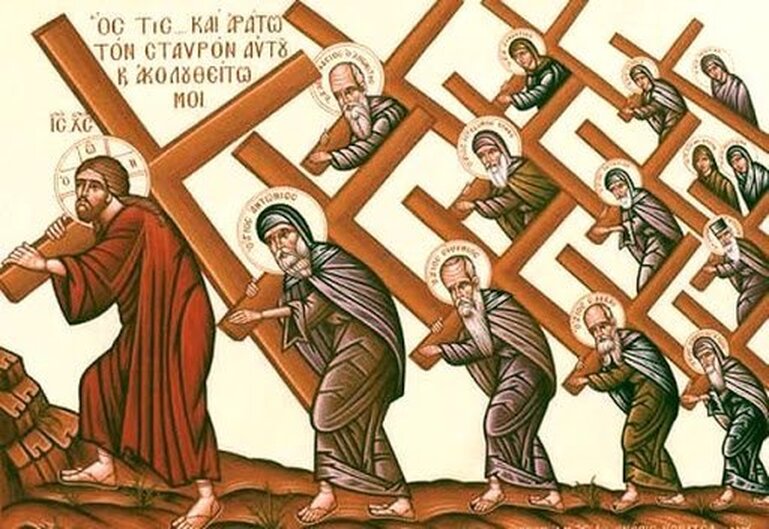

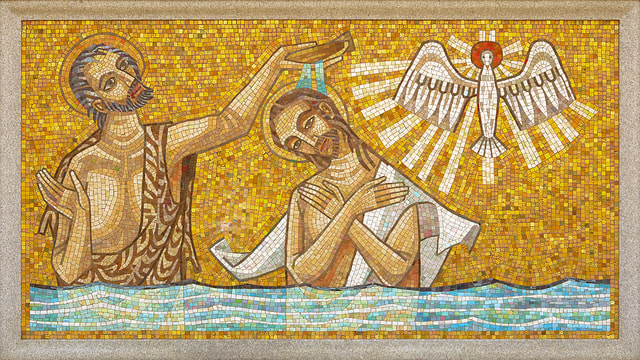
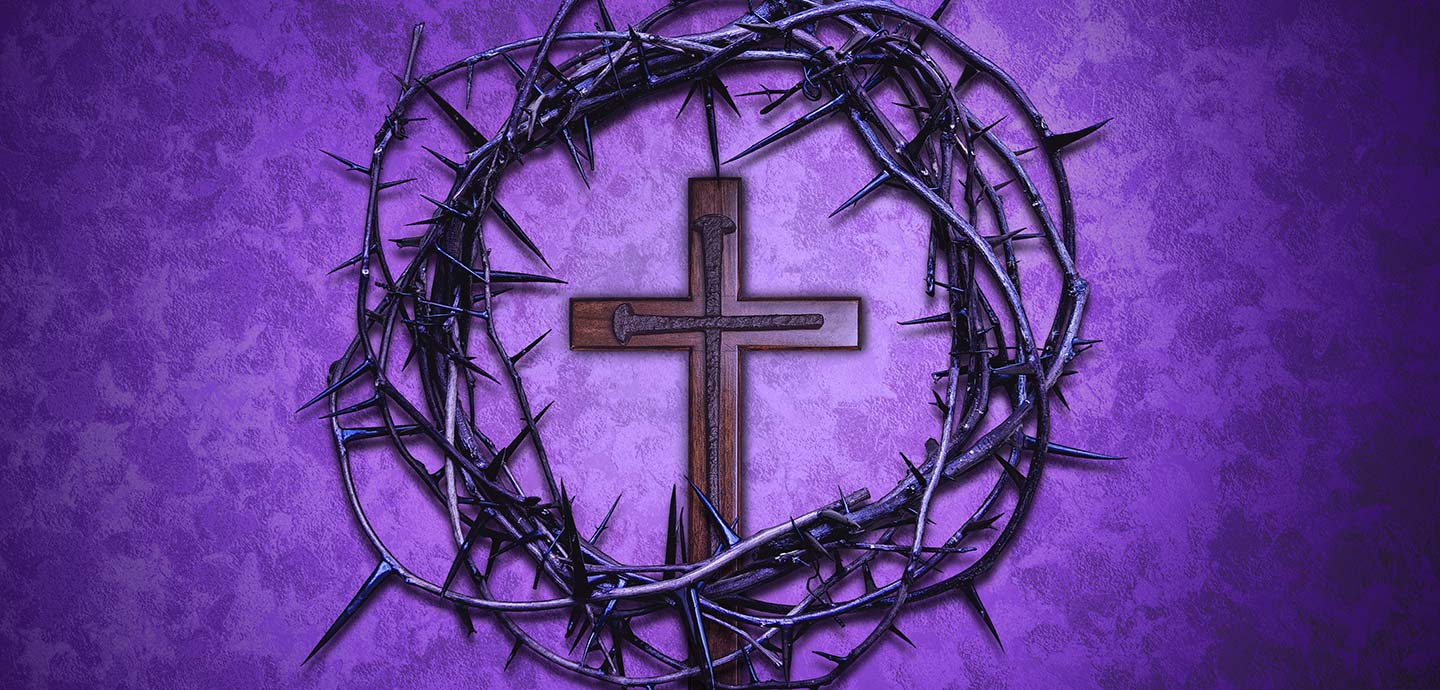

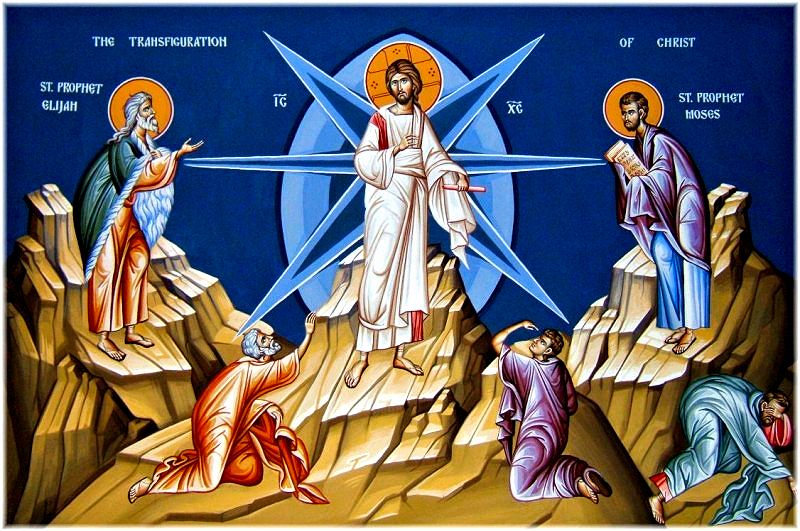
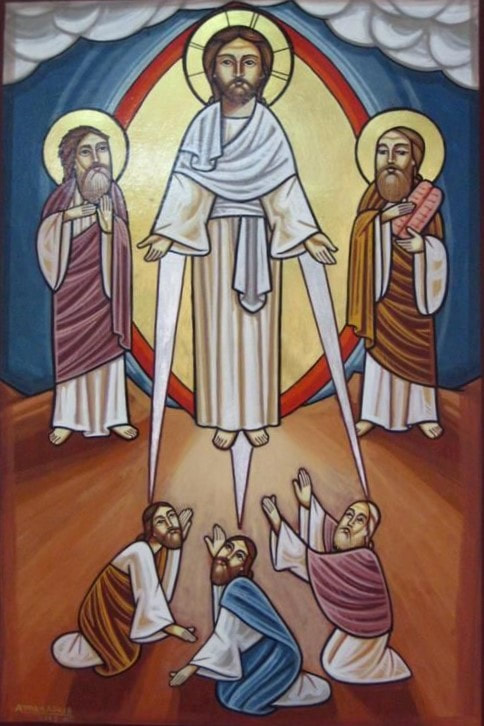
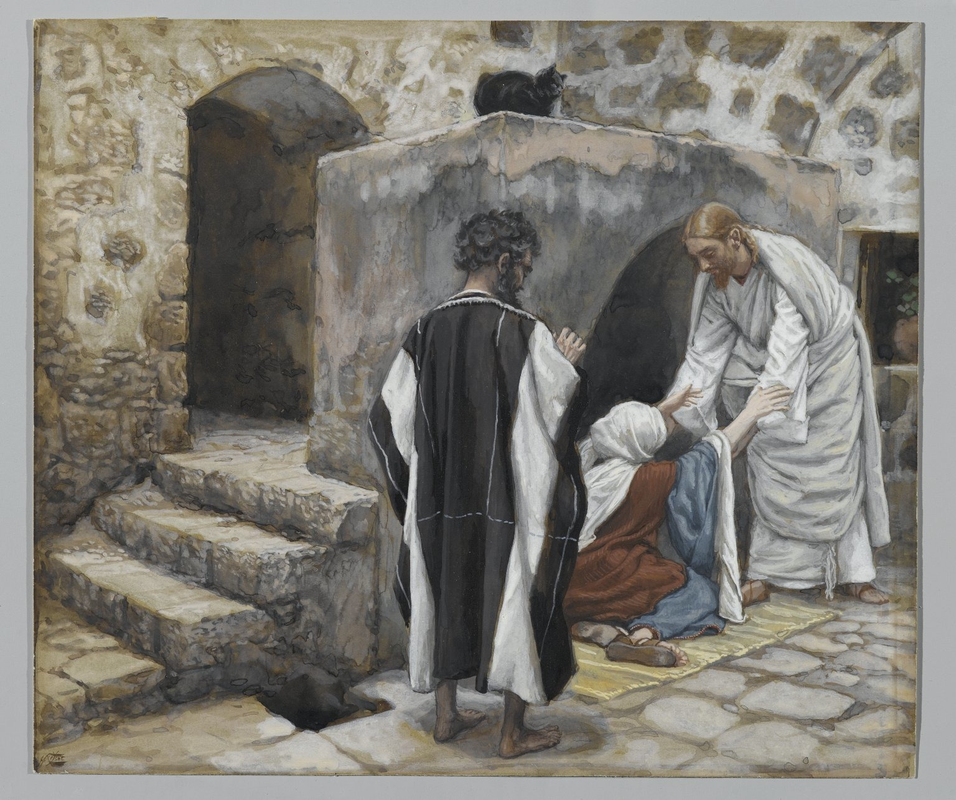
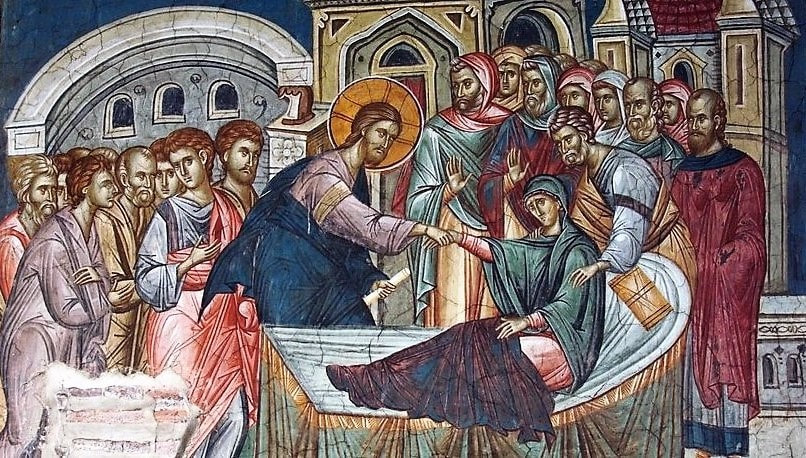
 RSS Feed
RSS Feed
